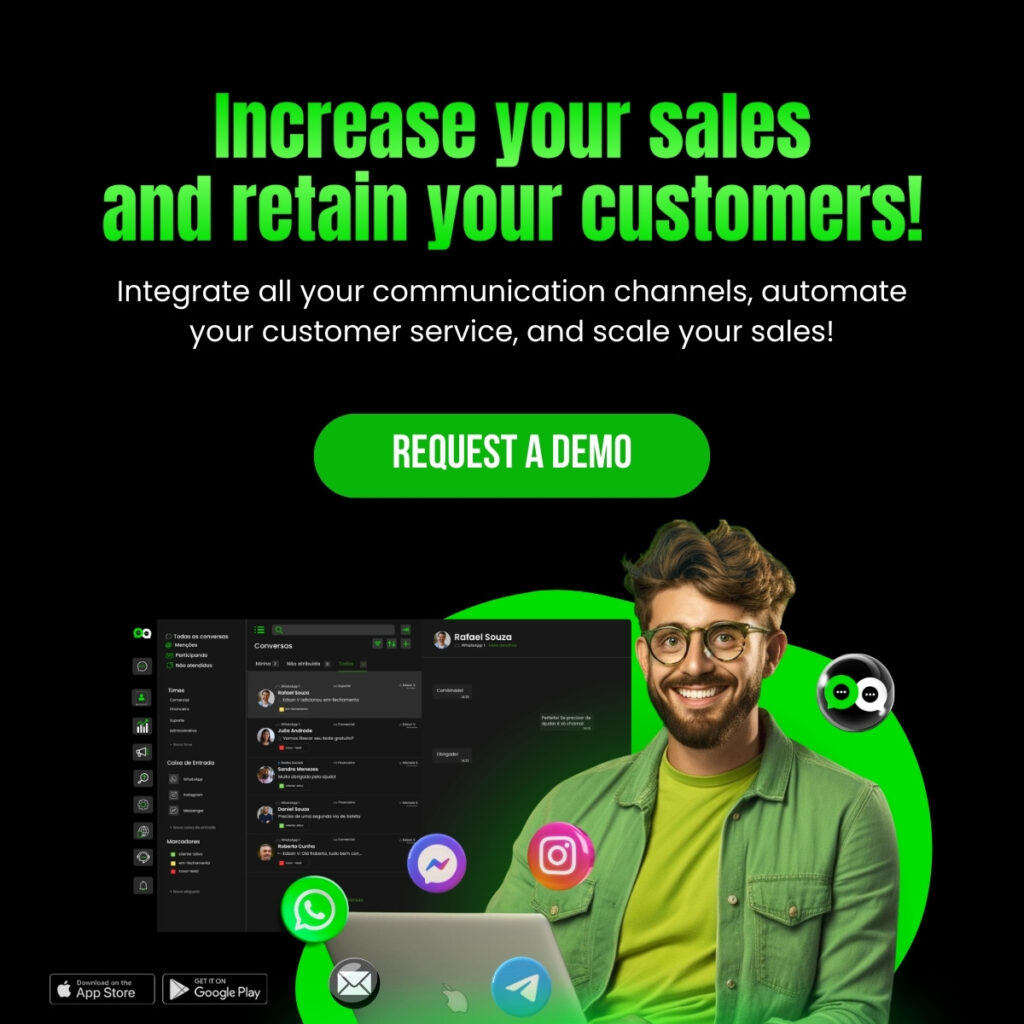Connecting all your company’s communication channels is no longer an option; it’s a necessity. Consumer behavior has changed. Customers no longer distinguish between online and offline, social media and emails. To them, your brand is a unified entity, and the experience you provide must be continuous and integrated.
This is where omnichannel marketing comes in—a powerful strategy that connects all touchpoints to create a consistent, personalized, and efficient customer journey.
What Is Omnichannel Marketing?
Omnichannel marketing is an approach that integrates all communication channels of a company—be it online, offline, digital, or physical—to deliver a seamless experience to the customer. Instead of operating each channel in isolation, omnichannel creates an ecosystem where all channels “talk” to each other.
Difference Between Multichannel and Omnichannel
While multichannel marketing uses various channels to engage with customers, these channels often operate independently. Omnichannel ensures all channels work together seamlessly.
For example:
- A customer starts a conversation on WhatsApp, continues via email, and completes a purchase on the e-commerce platform without losing the interaction history.
- Communication is personalized, regardless of the channel.
This integration ensures the customer perceives your brand as a cohesive entity, building trust and enhancing the experience.
Benefits of Omnichannel Marketing
Adopting an omnichannel strategy is not just a trend; it’s a competitive advantage that delivers tangible benefits to your business.
Improved Customer Experience
Modern customers seek convenience and personalization. By integrating your channels, they’ll feel understood and supported wherever they need assistance.
Practical examples:
- Receiving relevant offers through their preferred channel.
- Resuming a conversation without repeating themselves.
Increased Customer Loyalty
A seamless, integrated experience builds trust. Customers know they can rely on your business across any channel, increasing the likelihood of repeat transactions.
Enhanced Internal Productivity
Omnichannel marketing is not only about the customer but also about optimizing internal processes. With tools like Nexloo, your team has access to a centralized dashboard that streamlines support, communication, and sales efforts.
Boosted Sales and Conversions
Personalization is one of the key strengths of omnichannel. Studies show that customers who receive a personalized experience are 80% more likely to make a purchase. When communication aligns across channels, the impact on revenue is immediate.
How to Implement Omnichannel Marketing in Your Business
Implementing an omnichannel strategy might seem daunting, but with the right tools and practices, it becomes straightforward and highly effective.
Know Your Audience
It all starts with data. Understand who your customers are, which channels they use, and how they prefer to interact with your brand.
Helpful tools: Use management platforms like Nexloo to centralize customer data and identify preferences.
Centralize Your Communication Channels
The foundation of omnichannel is integration. This requires a technological solution to unify all your channels, such as WhatsApp, Instagram, email, and Telegram.
Practical example: Nexloo enables your team to manage all interactions in one place, without losing conversation history.
Automate Wherever Possible
Chatbots, quick replies, and automations are crucial for scaling your support without compromising personalization.
With Nexloo, you can set up automated workflows while offering a human touch when needed.
Train Your Team
A centralized system is powerful, but it needs to be used effectively. Ensure your team is trained to use the tools and deliver a high-quality experience.
Examples of Omnichannel Strategies
Omnichannel Strategy in E-commerce
A customer browses your online store, adds items to their cart, but doesn’t complete the purchase. Later, they receive a reminder email and an exclusive discount via WhatsApp. Feeling valued, they finalize their purchase.
Omnichannel Strategy in Customer Support
A customer contacts you via Instagram with a question, then calls your support center. With an integrated system like Nexloo, the agent has the interaction history and resolves the issue without delays.
The Role of Technology in Omnichannel Marketing
Integrating channels and personalizing experiences is only possible with advanced technology. This is where platforms like Nexloo make a difference.
Why Choose Nexloo?
- Centralized management: All channels in one dashboard.
- Intelligent chatbots: Fast, efficient support, 24/7.
- Performance analysis: Detailed reports to improve customer experiences.
- Easy implementation: Suitable for businesses of any size.
Essential Metrics in Omnichannel Marketing
To evaluate the success of your strategy, it’s crucial to track the right metrics:
- Retention rate: How often are your customers returning?
- Average response time: How quickly are you addressing inquiries?
- Customer satisfaction (CSAT): Are customers enjoying their experience?
- Conversion by channel: Which channels are driving the most sales?
Nexloo helps track these metrics efficiently, enabling real-time adjustments.
Start Your Omnichannel Journey Now
Omnichannel marketing is no longer just a trend; it’s a necessity in an increasingly competitive market. Connecting your channels, integrating operations, and delivering a unique customer experience can transform your brand and ensure sustainable growth.
With Nexloo, you have a complete solution to implement omnichannel in your business. Try it free for 7 days and discover how to transform your support and communication.
Visit Nexloo’s website now and take the first step to connect all your channels.




